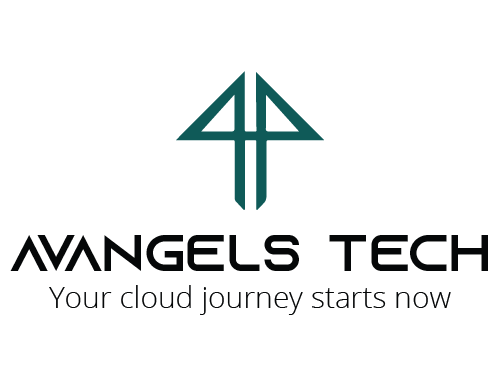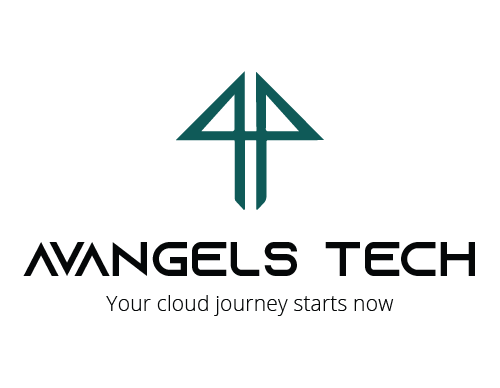Google Cloud Apigee
Unleashing the Power of APIs
This series of blogs looks at some of the most popular and commonly used services on the Google Cloud Platform. In this blog, we look at Google Cloud Apigee
Additional Reading
For more official documentation on “Google Cloud Apigee”, please visit the official Google Cloud website.
For detailed documentation on “Google Cloud Apigee API” , please visit the official Google Cloud website.
To get more information on “Google Cloud Anthos”, click the attached link.
To get a deeper understanding of “Google Kubernetes Engine”, click the attached link.
To get more information on “Google Cloud Storage”, click the attached link.
To get more information on “Google Cloud Functions”, click the attached link.
To get more information on “Google Cloud Pub/Sub”, click the attached link.
Introduction
In the rapidly evolving digital landscape, the ability to connect and communicate seamlessly is paramount. Application Programming Interfaces (APIs) play a pivotal role in facilitating this connectivity, enabling organizations to build scalable and efficient digital ecosystems. Google Cloud Apigee is a comprehensive API management platform that empowers businesses to design, deploy, and scale APIs with ease.
Businesses are increasingly relying on Application Programming Interfaces (APIs) to connect and streamline their systems, enhance customer experiences, and drive innovation. Google Cloud Apigee emerges as a robust solution, providing organizations with the means to efficiently manage, secure, and scale their APIs.
In this blog post, we’ll explore the key features and benefits of Google Cloud Apigee and delve into how it can transform the way businesses leverage APIs.
Understanding Google Cloud Apigee
Google Cloud Apigee is an API management platform that empowers organizations to design, deploy, and scale APIs with ease. It provides a comprehensive set of tools and features to address the entire API lifecycle, from creation and testing to deployment and analytics. Whether you are looking to create APIs, manage API traffic, or analyze API usage, Apigee provides a robust set of tools to meet your needs.
Key Features of Google Cloud Apigee
1. API Design and Development: Apigee offers a user-friendly interface for designing APIs. With its API Studio, developers can create, edit, and test APIs in a collaborative environment. Supporting various API protocols, including REST and GraphQL, Apigee offers the flexibility needed to design APIs tailored to specific business needs. This accelerates the API development lifecycle, ensuring that APIs are well-designed and adhere to best practices.
2. API Gateway: The API gateway is a core component of Apigee, serving as the entry point for incoming API requests. It handles tasks such as authentication, authorization, rate limiting, and request/response transformations. This ensures that APIs are secure, scalable, and performant.
3. Analytics and Monitoring: Apigee provides powerful analytics and monitoring capabilities, allowing organizations to gain insights into API usage, performance, and errors. The platform provides comprehensive analytics to monitor API performance, identify bottlenecks, and gain insights into user behaviour. Real-time analytics help in identifying and resolving issues promptly, ensuring a smooth and reliable API experience. Additionally, real-time analytics and customizable dashboards empower organizations to make data-driven decisions for continuous improvement.
4. Security and Access Control: Security is a top priority for Apigee. It offers robust security features such as OAuth integration, API key management, and threat protection. It supports OAuth, API key validation, and JWT (JSON Web Token) validation to control access to APIs and protect sensitive data. Access control policies enable organizations to define and enforce security policies at the API level.
5. Developer Collaboration: Apigee facilitates collaboration between developers through features like API documentation, testing, and versioning. The developer portal provides documentation, code samples, and other resources, making it easier for developers to understand and use APIs effectively. The developer portal provides a centralized hub for developers to discover, consume, and understand APIs.
6. Traffic Management: Apigee enables organizations to handle API traffic efficiently by offering features such as rate limiting, quota management, and caching. This ensures optimal performance even during peak usage, preventing overloads and maintaining a seamless user experience.
Benefits of Google Cloud Apigee
1. Accelerated Time-to-Market: Apigee’s user-friendly interface and tools streamline the API development process, reducing time and effort and accelerating the creation of robust APIs. Apigee’s intuitive design tools and pre-built policies streamline the API development process, reducing time to market for new digital initiatives.
2. Enhanced Scalability: The scalability of Apigee’s API gateway ensures that your APIs can handle increasing traffic and demand, providing a reliable and responsive experience for users. With built-in security features, organizations can ensure the confidentiality and integrity of their APIs, protecting sensitive data from unauthorized access.
3. Improved Security and Compliance: Apigee’s robust security features help organizations meet compliance requirements and protect sensitive data, building trust with both customers and regulatory bodies.
4. Improved Insights: The analytics and monitoring capabilities of Apigee empower organizations with actionable insights into API usage patterns, performance bottlenecks, and potential issues, enabling data-driven decision-making, enabling organizations to optimize APIs for better performance and user satisfaction.
5. Developer Empowerment: By providing a collaborative environment, documentation, and testing tools, Apigee empowers developers to innovate and create high-quality APIs, fostering a culture of continuous improvement.
6. Scalability: Apigee’s scalable infrastructure allows organizations to handle growing API traffic without compromising on performance, ensuring a seamless user experience.
Use Cases of Google Cloud Apigee
1. Digital Transformation: Apigee is instrumental in digital transformation initiatives, aiding organizations in modernizing their IT infrastructure and seamlessly integrating new technologies.
2. API Monetization: Organizations can leverage Apigee to monetize their APIs by securely exposing them to external developers or partners, creating new revenue streams.
3. Partner Integration: Apigee simplifies the process of integrating with external partners by providing the tools needed to manage and secure API interactions effectively.
Conclusion
In the competitive landscape of the digital era, Google Cloud Apigee emerges as an invaluable asset for organizations seeking to harness the full potential of their APIs. With features spanning the entire API lifecycle and a strong emphasis on security, scalability, and analytics, Apigee proves instrumental for businesses aiming to stay ahead in the ever-evolving digital landscape. As the demand for seamless and interconnected digital experiences continues to grow, Google Cloud Apigee remains a cornerstone for organizations striving to thrive in this dynamic environment.
In conclusion, Google Cloud Apigee stands out as an indispensable API management platform, offering a comprehensive solution for organizations seeking to unlock the full potential of their APIs. With its holistic features and emphasis on security, scalability, and analytics, Apigee positions itself as a valuable asset for businesses navigating the complexities of the digital landscape. As organizations strive to stay agile, secure, and responsive to customer needs, the adoption of Google Cloud Apigee becomes a strategic move towards building a robust and scalable digital infrastructure.


